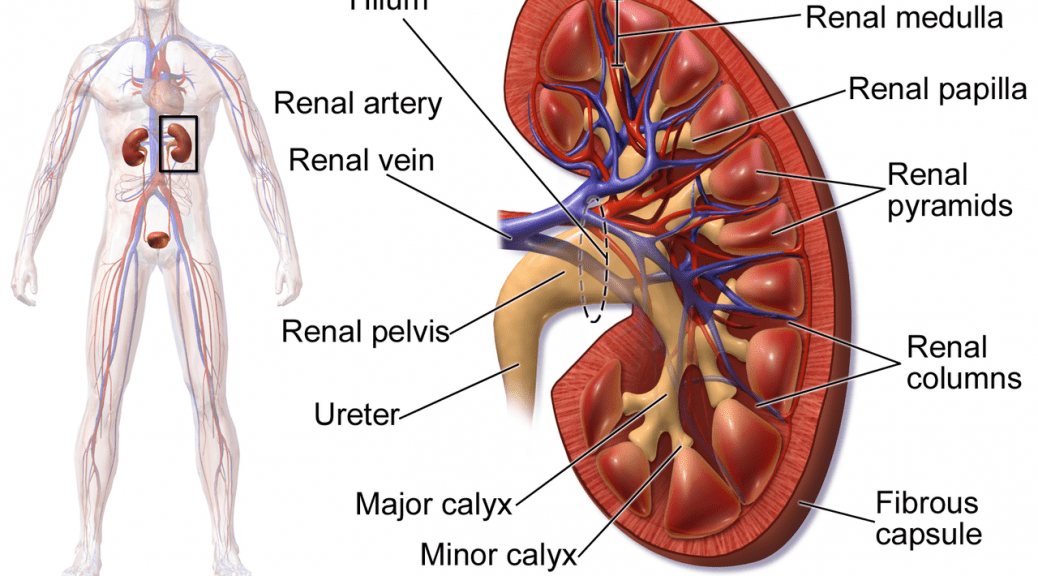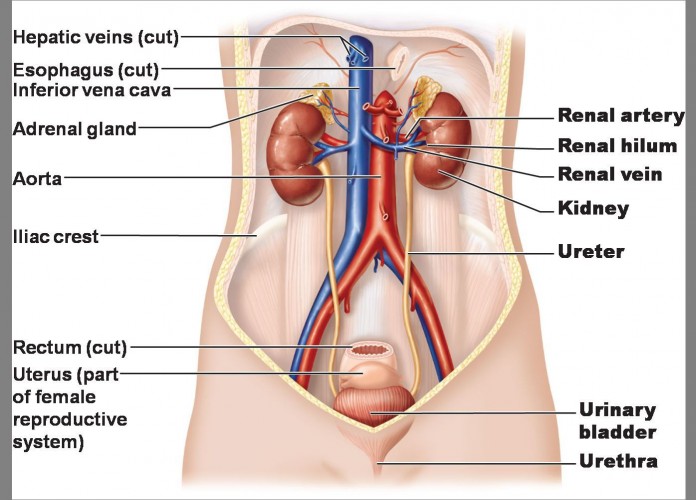
Taking Care of Your Kidneys: The Key to Your Daily Productivity
Taking Care of Your Kidneys
It’s true that we don’t realise the value of something until we lose it. I struggled for over 10 years with kidney disease and despite constant warnings from my doctor that non-compliance with medication would cost me my kidneys, I never ever imagined being the one on dialysis, let alone need somebody else’s kidney to survive.
Chronic kidney disease can severely affect your daily productivity: it causes persistent fatigue, nausea, swelling due to water retention, anaemia, and ruins your appetite. When you reach chronic renal failure, where your kidneys can no longer sustain you, dialysis is the only option until a donor kidney is available.
Even though we are born with an ‘overabundant’ kidney capacity, i.e. a single kidney can sustain life very well, kidney disease is widely prevalent and kidneys are the most commonly transplanted organs.

Kidney Disease and Productivity
Dialysis imposes serious limitations on your lifestyle and takes a toll on your productivity. The process itself of a machine filtering your blood then returning the cleansed blood to your body over a period of four hours, three times a week sucks the energy out of you. Yet, it’s something you have to do to stay alive. It also comes with many dietary restrictions and funnily enough, a tight limit on water intake (since your body will not be able to get rid of the excess). The one time I skipped a session to attend a conference on kidney disease (ironically), I ended up in hospital with severe muscle pain due to high potassium level, which kidneys usually take care of.
Your physical productivity is not only what goes down the drain. Socially, it’s hard to make commitments because you never know how well you’re going to feel post-dialysis. Spiritually, fasting is definitely not recommended; I did not fast for the entire month of Ramadan when I started dialysis. Your lack of energy will often make it hard to go beyond the bare minimum: the five fardh prayers. The bottom line is, dialysis results in a very poor quality of life.
How to Have Healthy Kidneys
Well, I learned the importance of my kidneys the hard way, but it doesn’t have to be the same for you! With certain lifestyle changes suggested in this post, you’ll be able to take care of this team of two that works around the clock to filter waste and regulate water and salt balance in such an intricate and beautiful manner.
When laziness overcomes you, remember that health is a blessing from Allah and if we are reckless towards it, we will be held accountable.
Apart from the well-known words of advice about staying physically active, eating a balanced diet, quitting smoking and maintaining your weight in the normal range for your age and body size, I want to shed light on other tips that will specifically help you keep your kidneys operating at an optimum level, In sha Allah:
Water, Water, Water
“Allah has created every [living] creature from water…” [Qur’an: Chapter 24, Verse 45]
Reflecting upon this verse, I cannot begin to emphasize the importance of drinking enough water to keep your body functioning optimally. Every single cell in your body depends on water, and your kidneys are in charge of eliminating excess water or retaining it when scarce.
The golden standard has always been to drink “eight 8-ounce glasses of water a day.” It’s easy to remember and easy to do! However, some factors such as doing exercise, living in a hot climate, and being ill, require additional hydration, so this 8-8 rule is not set in stone. Other fluids also count, but it’s important to make water your beverage of choice.
When you have a long and busy day, it’s easy to forget to drink water until you feel really thirsty. In fact, the thirst mechanism is the first step the body takes to signal the need for water. Next, the kidneys decrease urine output to conserve water. As the level of water loss increases, other unpleasant symptoms appear. In cases of severe dehydration, confusion occurs as blood flow to the brain decreases. Eventually, coma, organ failure, and death will occur if dehydration is left untreated.
Here’s how you can stay hydrated at all times:
Choose a suitable brand of bottled water
In some countries, tap water is not clean enough to drink. In that case, you probably drink bottled mineral water. When faced with dozens of brands at the grocery store, which one do you choose? Does it matter? It really depends on why you’re drinking it in the first place. However, to simplify matters, there are four factors that should influence your choice:
1. Taste: Different brands have different tastes. What appeals to someone, may not be to your liking. You’re more likely to drink water if you enjoy its taste, so find out which water you like most and stick to it.
2. pH (acidity): The body maintains our blood at a pH of 7.4, which is slightly alkaline. Therefore, try to choose water with a pH that is close to this level.
3. Cost: Some brands of bottled water are ridiculously expensive. Determine how much you’re willing to spend on water and choose accordingly.
4. Mineral composition: There is tremendous variation in mineral content between the different brands of commercially bottled water. In the absence of guidelines on what is optimal, it’s difficult to interpret what’s on the label. Don’t worry too much about this one, unless your doctor specifically tells you to watch out for the amount of a certain mineral.
Keep a water bottle or refillable flask with you at all times
This is something I tried recently which worked well for me. I started buying a 12-pack carton and taking two 600-ml refrigerated bottles of mineral water to work every day. This way I’m constantly reminded to drink whenever I see the bottle on my work desk. If your job is outdoors, consider investing in a flask that keeps liquids cold, especially during the summer. You could also buy smaller or larger bottles at any grocery store or vending machine and use them as you go along.
Check the colour of your urine
Sounds gross? It only takes a second. You want your urine to be colorless or light yellow and have no smell. Darker urine that has a strong odor is more concentrated and may indicate dehydration, which means water loss exceeds water intake.
Use an app to keep track of your daily water intake
There are many free apps (e.g. Vesi) that you can install on your smartphone to find out how much water you’re drinking per day. This is especially useful if you feel you do not drink enough water and want to increase your water intake.
Watch your sodium (salt) intake
According to the Dietary Guidelines for Americans (2010), we should limit daily sodium intake to less than 2,300 mg per day. Yet, most of us consume more sodium than we actually need. Too much sodium in your diet may raise your blood pressure, so you should limit foods that contain high levels of sodium.
High blood pressure or hypertension is sometimes referred to as a “silent killer.” This is because a person may not experience any symptoms until it is too late. That is, when it causes a heart attack, stroke, or damage the kidney’s delicate filters and blood vessels. This usually happens in the presence of other problems, such as high cholesterol levels and diabetes. It is not a condition to be taken lightly.
I recall when I was on dialysis, the doctors would not discharge me from hospital because my blood pressure was uncontrollably high and six medications would not keep it at a normal level (120/80). I couldn’t comprehend being hospitalized just for that, but it’s actually quite dangerous if left untreated.
Cut back on sodium sources
The easiest way to do so as a start is to reduce consumption of canned and processed foods, fast foods, and salt-laden condiments such as ketchup and mustard.
Cook smart
Use less salt when cooking for your family and get them used to enjoying healthy food without extra salt from the beginning.
Do not ignore nature’s call
Your bladder stores urine and has a capacity of 400-600ml. Once it’s full, a signal is sent to your brain telling you to find the nearest restroom.
Ignoring this message can lead to two main problems: over time, your bladder starts to lose the ability to tell you that you need to go. Also, urine that is stored in the bladder for a long time becomes breeding ground for bacteria, putting you at risk for infections which may reach the kidneys and cause damage.
Keep chronic conditions under control
The two most common causes of kidney failure are diabetes and hypertension (high blood pressure). Do not take these chronic conditions lightly.
- If you have diabetes, monitor your blood sugar level closely to keep it under control.
- If you have high blood pressure, make sure you check your blood pressure regularly, whether at home, at the pharmacy or at your local clinic. Make sure you take your blood pressure medication as instructed. Only taking the pill when you have a headache is not okay!
- If you have a family history of kidney-related disease, follow these tips strictly and get tested regularly. Our kidneys are resilient and won’t start complaining until some damage has occurred.
Go easy on over-the-counter (OTC) medications
Certain drugs are classified as potentially nephrotoxic, meaning their continued and excessive use can poison the kidneys. These include painkillers such as ibuprofen. Therefore, it is important not to abuse such medications unnecessarily or without a doctor’s supervision.
Let’s put this all together
Even the slightest damage to your kidneys can turn your life and consequent productivity levels upside down. At the beginning, simply waking up every morning with puffy eyes and swollen ankles ruined my mood. When the anemia kicked in, I started needing weekly injections. Then when my kidneys shut down, I suffered shortness of breath. After dialysis, on most days I couldn’t drive myself home and when I did I dove straight into bed. I only started feeling normal again when I received a working kidney. Nothing works as good as the perfect organs Allah has bestowed us with, not even modern-day dialysis techniques.
It’s easy to take what we have for granted, especially our organs, which work around-the-clock from when we are born, behind the scenes, with zero effort from our end. The above were some tips from my personal experience to help you look after your kidneys. So, let’s do what little we need to in an effort to thank Allah for the blessing of good health: the cornerstone of our daily productivity!